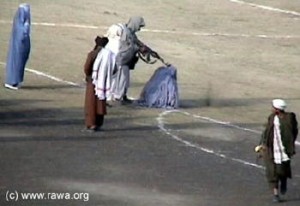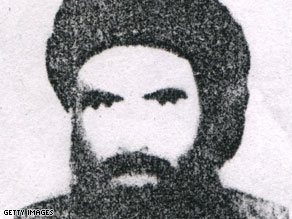The Afghanistan Kajaki Dam and Hydroelectric Plant
BY Herschel SmithOur friend Joshua Foust at Registan asks some salient questions concerning the Kajaki dam.
Remember that time Michael Yon bravely reported the “top secret” mission to refurbish the Kajaki hydro plant? The same top secret mission ISAF bragged about in a press release on the very same day? It seemed like a wonderful thing, a stunning blow both to the Taliban in Helmand (who couldn’t stop its transportation and installation), and to the naysayers who are convinced there is no hope for the country.
Yes, we sure do. In fact, The Captain’s Journal recalls a week before Yon wrote about the dam project when we authored:
The British Approach to Counterinsurgency, and
Defense Analysts Echo The Captain’s Journal Concerning Kajaki Dam
And what The Captain’s Journal said was important and prescient. But first, back to Joshua’s questions. He cites a recent New York Times article that updates the situation around the dam project.
It has been a rare instance of a fulfilled promise in the effort to build up Afghanistan’s infrastructure. But even with the step forward, the improvements to the dam, in an inaccessible area of northern Helmand Province, are still being held hostage by the Taliban’s growing ability to mount offensives in recent years. The overall power project has been repeatedly delayed because of the difficulty of security and logistics. And the rest of the original $500 million proposal to augment the capacity of the dam itself has not been approved, cast in doubt by the Taliban’s gains.
“In the case of the Kajaki Dam or others, the security situation impedes the delivery of the service,” the American ambassador to Afghanistan, William B. Wood, told reporters in Washington in June. “The reason that there isn’t more light at night and more warmth in winter for south Afghanistan is because the Taliban has not let us do everything, work as effectively as we’d like to on the Kajaki Dam.” …
The huge operation was criticized in the British news media, which questioned the exposure of British soldiers to such high risk to save an American government assistance project.
Yet for the Afghans employed here, and the frustrated residents of cities like Kandahar, who have lived with barely a few hours of electricity a day for the past seven years, NATO was belatedly meeting its commitment to bring development to southern Afghanistan…
Mr. Rasoul is now in charge of the next stage, with an American engineer, George H. Wilder, 62, who works for the American contractors in charge of the project, the Louis Berger Group. They work and live in a small construction camp next to the dam, protected by a battalion of British and Afghan soldiers who keep the Taliban, who hold the surrounding villages, at bay. Everything the workers and soldiers need comes by helicopters that fly high over the brown, barren mountains and then spiral down over the green-blue reservoir into the camp to avoid enemy fire.
Josh asks the following question:
This remains remarkable: a Berlin Airlift for southern Afghanistan, if you will. But the fundamental objection to it remains: is it smart to build an expensive, borderline indefensible power station when you cannot provide basic security and services to the nearby villagers? This turbine camp represents, along with all the hope and sunshine, an enormous, juicy target for militants or drug lords seeking a way to poison the entire southern effort. While it’s nice that the camp “rarely comes under [direct] fire anymore” thanks to some impressive soldiering by the British, how long will those gains stay in play once the turbine is installed and the power substations set up? Will an entire battalion be required to defend each? … Am I alone in thinking we could be spending our time, money, resources, and (most importantly) manpower in a much better way?
One commenter to Joshua’s post appears to be on drugs, when he dreams a psychedelic vision wherein Obama talks the Taliban into siding with the U.S. and guarding the dam as if they were productive members of society. But inebriated commenters notwithstanding, The Captain’s Journal pointed out in the above two links one week before Michael Yon covered this affair (and it was a brave operation indeed by British forces) that similar to the irrigation canal that was blocked by al Qaeda in Iraq by merely shoveling dirt into it, and the electricity supplies that were terminated by simply destroying the local electrical grid, the Taliban don’t have to destroy the dam or the generators. All they have to do is kill the operators or destroy the electrical grid by cutting transmission lines or blowing up towers.
It’s easy, unfortunately, and it ruins the hard fought reconstructions efforts. We also said:
The point is that in order for infrastructure to work, the enemies of that infrastructure must be targeted. The dam won’t long operate if its operators are all killed, or if other replacement parts have to undergo such intensive operations in order to be deployed at the plant. Infrastructure is good, as is good governance. But for these softer tactics in counterinsurgency to be successful, the Taliban must be engaged and killed. The softer side of counterinsurgency might win a lasting peace, but cannot win kinetic operations.
We’ve got the order wrong. We’re attempting to do reconstruction before ensuring security; similarly, efforts to rebuild Highway 1 from Kabul to Kandahar are failing due to the holes in the tarmac caused by unmolested Taliban.
The Captain’s Journal is sorry to be the bearer of bad news, but there is no magic, there are no buttons to push, no deep Gnostic incantations to utter. Security must be provided to the population in order to win counterinsurgencies, and this means killing the hard core Taliban. There are believed to be on the order of 20,000 of them in the Helmand Province alone.






